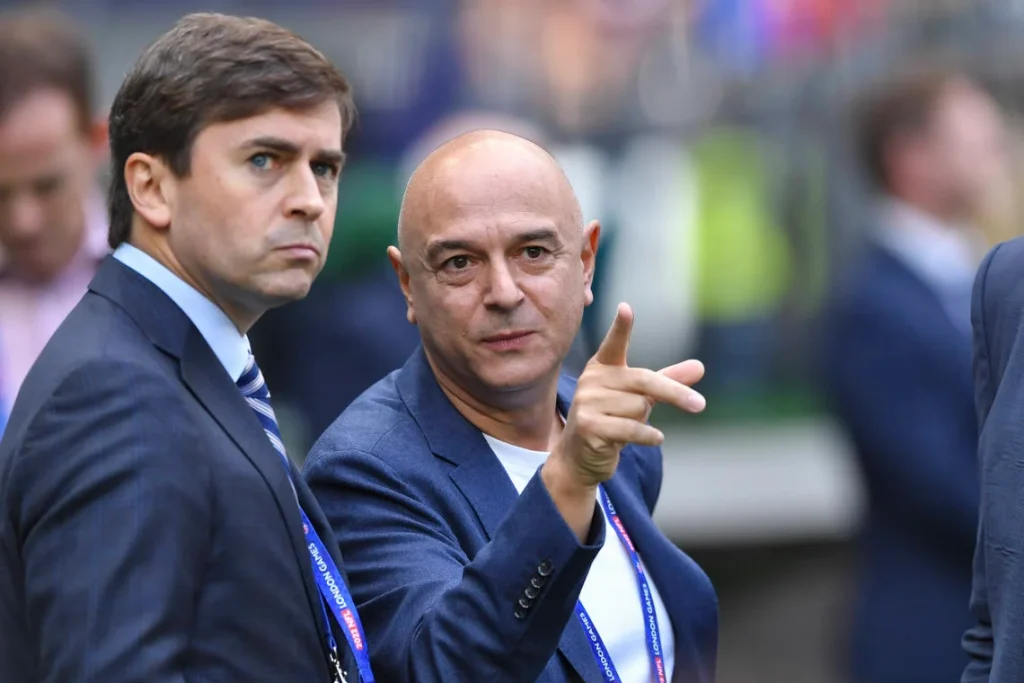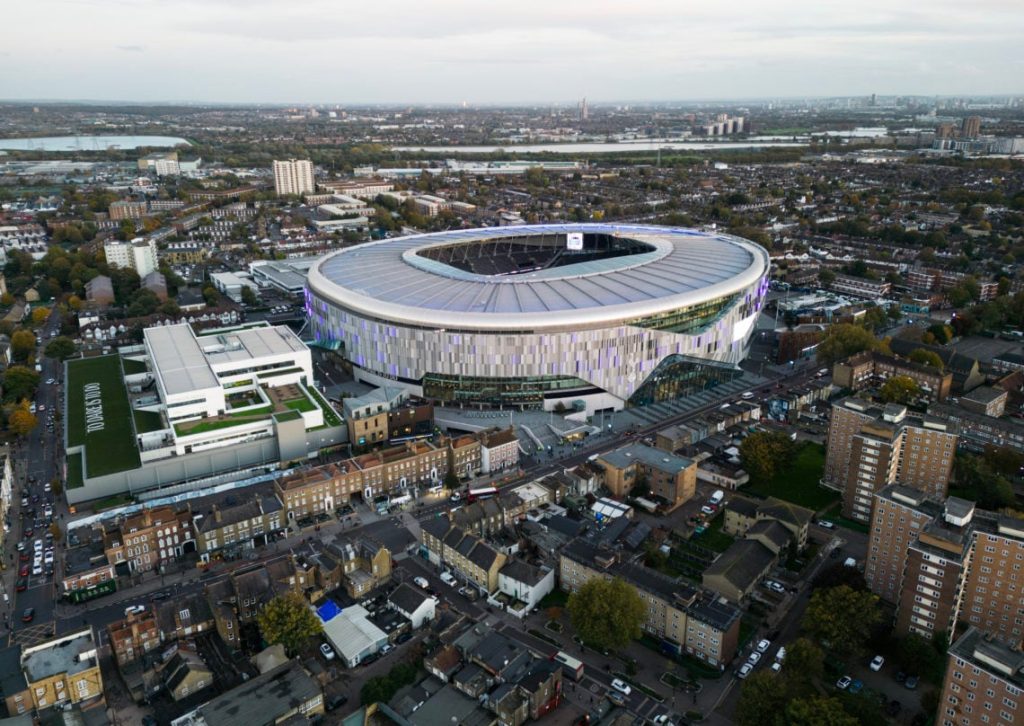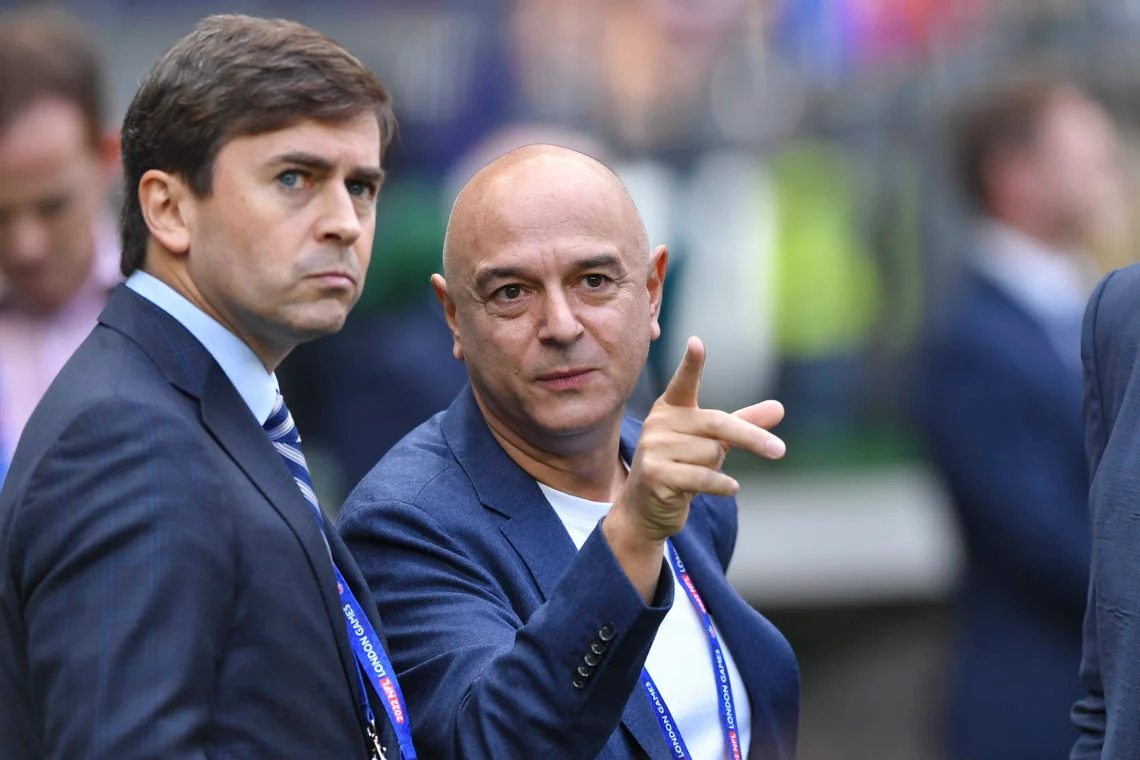Real Madrid’s latest developments could pose new concerns for Tottenham Hotspur and chairman Daniel Levy, especially in light of recent news from Spain.
In the past, Tottenham and Real Madrid enjoyed a strategic partnership, initiated after Luka Modric’s move to the Bernabeu in 2012.
This alliance was aimed at improving both clubs’ commercial and sporting performance, but it didn’t last long.
Tottenham confirmed that the formal partnership ended a few years later, and since then, cooperation between the two clubs has been minimal.
The two teams last faced each other in November 2017 during the Champions League group stage, where Tottenham secured a 3-1 victory at Wembley Stadium.

Real Madrid, however, went on to win the competition that year. At the time, Spurs were playing their home games at Wembley due to the construction of their new state-of-the-art venue, the Tottenham Hotspur Stadium, which was completed in 2019.
This 62,850-seater stadium has become one of Tottenham’s most valuable assets, generating over £118 million annually in matchday income alone.
In addition, the stadium has become a hub for major non-football events, including concerts by global superstars like Beyoncé and Red Hot Chili Peppers, as well as boxing matches and the NFL’s London Games.
The strategic placement of the stadium within Haringey has allowed Tottenham to tap into lucrative revenue streams, with estimates suggesting eight-figure returns annually.
However, with increased event hosting comes potential challenges, as highlighted by a recent situation faced by Real Madrid, which could serve as a warning for Tottenham.
Real Madrid, like Spurs, have expanded the use of their home stadium, the Santiago Bernabeu, to host non-football events, as part of a £1.5 billion renovation project.
This upgrade has been financed partly by Sixth Street, a private equity firm that loaned Real Madrid £270 million to help diversify revenue at the revamped stadium.

However, recent reports from Sport Business suggest that the Bernabeu’s ability to host concerts may be jeopardized by an embargo on music events due to noise complaints from local residents.
This issue could cause significant disruption to Real Madrid’s plans to maximize revenue from the stadium.
The Tottenham Hotspur Stadium’s financing comes from different sources, including Bank of America Merrill Lynch, Goldman Sachs, and HSBC.
The deal secured by Tottenham, with a fixed interest rate, is seen as exceptionally good value, especially in today’s economic climate.
However, the potential for noise complaints and other community concerns surrounding the stadium’s event hosting capabilities might now be a significant factor for Levy and the Spurs board to consider.
Tottenham’s relationship with Haringey Council has been positive, but recent discussions have raised concerns about noise pollution, ticket touting, littering, and the impact of large events on local traffic and transport.
With Real Madrid’s current predicament serving as an example, Tottenham’s leadership will likely pay close attention to any issues that could reduce the stadium’s earning potential, especially given how vital that revenue is to the club’s operations.
The Tottenham Hotspur Stadium is more than just a football venue; it’s the club’s most valuable asset and a major driver of its financial stability.
As Levy looks for minority investment in the club, the stadium’s ability to generate reliable income makes it a crucial selling point for potential investors.
The stadium has positioned Tottenham as one of the top performers in Europe in key financial metrics, helping to future-proof the club against unforeseen financial challenges.
ENIC, Tottenham’s ownership group, and Levy have hinted that any new investment could lead to increased spending in the transfer market, but it’s clear that the club’s recruitment strategy currently relies heavily on the revenue generated by the stadium.
Unlike other Premier League clubs whose owners are willing to accept losses in pursuit of growth, Tottenham’s leadership remains committed to a model that prioritizes financial sustainability. This means they are unlikely to outspend their income, even as they seek to improve their squad.
Ultimately, while the Tottenham Hotspur Stadium secures the club’s financial future, the challenges that come with maintaining such a high-revenue asset must be managed carefully.
The issues Real Madrid are facing with their own stadium could serve as a reminder of the importance of staying ahead of potential obstacles to ensure long-term success, both on and off the pitch.
Read Also: Maddison and Udogie left in awe of £55M Tottenham rated in 3-1 win over Brentford
Read Also: Former Liverpool boss backed to replace struggling Postecoglou at Tottenham

